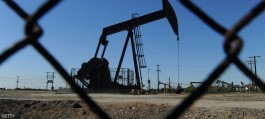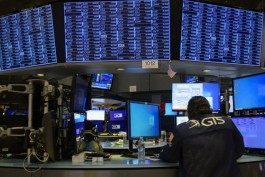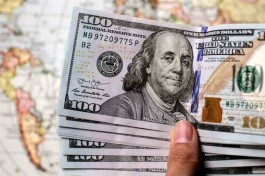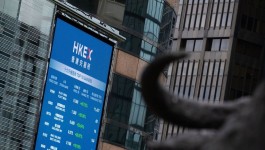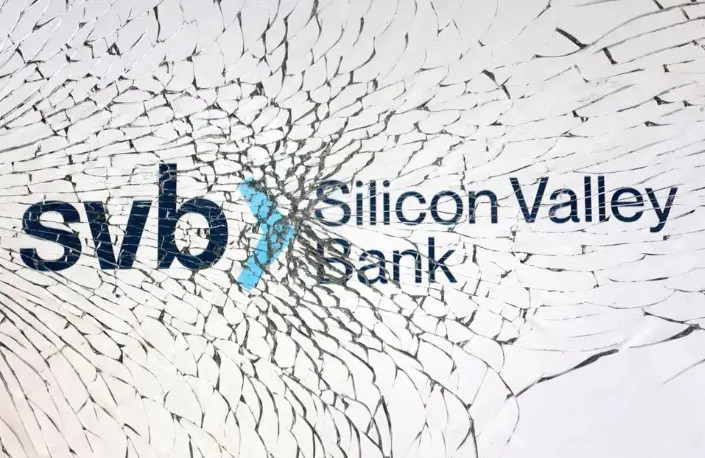The collapse of the US Silicon Valley bank on Friday, the largest banking failure since the financial crisis in 2008, raised questions about the impact of the banking sector, especially in Middle Eastern countries.
The banking sector in the Egyptian Stock Exchange declined by about 1.53 percent during Sunday's trading session until the time of writing the report, and the banking sector shares in the Saudi market witnessed a greater decline by about 2.04 percent.
This comes after the global financial markets ended their dealings in the red zone on Friday, affected by the collapse of the American Bank.
In this context, Saeed Al Darmaki, an economist for the CNN Economic platform, says that banks in the Arab region may be affected by the collapse of the Silicon Valley bank if global markets begin to collapse.
The rapid collapse of the Silicon Valley Bank has shaken the banking industry in the United States after years of stability.
Silicon Valley is one of the most famous banks in the world for startups, with total assets of $209 billion and total deposits of $175.4 billion.
And last Friday, a wave of deposit withdrawals for two days after the bank announced its intention to raise more than two billion dollars from investors to fill a gap in its financial resources caused the bank to collapse, becoming the biggest victim of the Federal Reserve’s policy of raising interest rates to curb inflation for nearly a year.
Are Arab banks affected?
The possibility that banks in Arab countries will be affected by the collapse of the “Silicon Valley” bank remains remote, according to Rami Abu Zaid, director of the market research department at “ATFX Global Markets”.
Abu Zaid added, in statements to the “CNN Economic” platform, that there is no information yet about the existence of financial relations linking any of the banks in the region with this bank, in addition to the strength and strength of the centers and the financial solvency of Arab banks.
Abu Zeid said that banks in the region usually follow a cautious and prudent policy to manage risks and hedge against this type of risk, mainly through adequate financial allocations.
Sahar El-Damati, a banking expert, believes that what happened to the American Bank is a very important indicator of what the banking sector is suffering from the effects of the policies of continuous interest rate hikes.
She added that raising interest rates is not always the ideal solution to curb inflation, especially if it stems from price increases resulting from the instability of the exchange rate, and has nothing to do with an increase in demand in light of the decline in purchasing power in a market like Egypt.
Amr Hassanein, a professor specializing in finance at the American University and head of the Mers credit rating company, ruled out that local banks in Egypt and the Arab countries were affected by what happened to Silicon Valley Bank, due to the lack of financial transactions between local banks and the American bank.
He added that the bank's collapse did not have a significant impact on the US market, pointing out that central banks in the region manage the banking sector well, avoiding the risks of facing such crises.
Kuwaiti banks are safe
The Central Bank of Kuwait said that the exposure of Kuwaiti banks to the “Silicon Valley” bank is very, very small, indicating that the bank has an integrated control system aimed at fortifying the banking sector and maintaining financial stability.
He added that there is an integrated package of instructions and supervisory controls issued to banks to maintain the integrity of their financial positions and enhance all indicators of financial safety, especially with regard to basic standards, including capital adequacy standard, liquidity standards, and standards related to asset quality and profitability.
Diversity of activities
“The reason Silicon Valley Bank is in trouble is because it is focused on certain industries,” said Jonas Goltermann, deputy chief market economist at Capital Economics.
He told CNN that most other banks are more diversified.
Founded in 1983, Silicon Valley Bank specializes in banking for tech start-ups in the technology and healthcare sectors.
On Friday, US Deputy Treasury Secretary Wally Adimo sought to reassure the public about the health of the US banking system after the bank's sudden collapse.



















